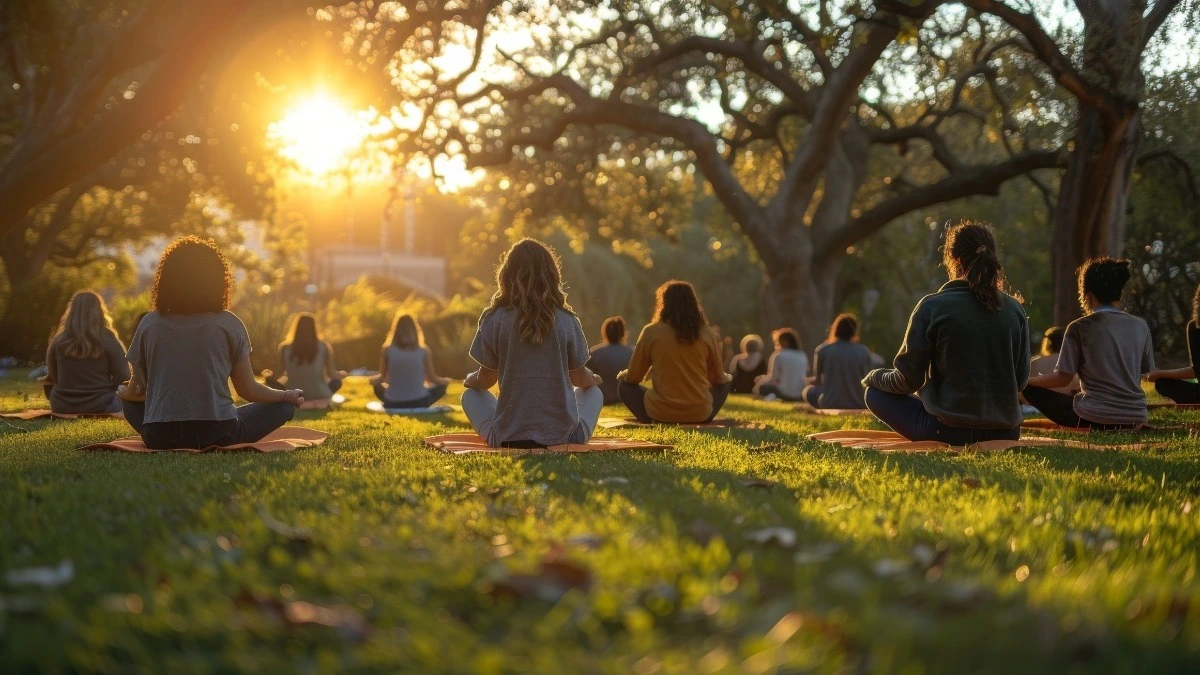In this modern world, mindfulness has converted into an essential training for managing stress and boosting overall prosperity. Mindfulness practices support a way to centre ourselves, stimulate self-compassion, and enhance mental clarity. This guide probes the most effective mindfulness exercises for freshers, with feasible tips on how to integrate them into daily life.
What is Mindfulness?
Mindfulness is the execution of being fully present and apprised of the moment. It’s about examining thoughts, feelings, and sensations without judgment, approving a peaceful and balanced mind. Techniques such as mindfulness-based stress reduction (MBSR mindfulness) and mindfulness-based cognitive therapy (MBCT mindfulness) have manifested remarkable mental health benefits, in addition to improved focus, reduced anxiety, and enhanced emotional resilience.
Key Mindfulness Practices
Following is a table summarizing the most popular mindfulness practices for freshers, with descriptions and their primary benefits:
| Practice | Description | Benefits |
|---|---|---|
| Mindfulness Meditation | Sitting quietly and focusing on your breathing or a specific sensation | Reduces stress, improves focus |
| Body Scan Meditation | Mindfully scanning each part of the body to observe sensations | Promotes relaxation, relieves tension |
| Mindful Movement | Incorporating mindful awareness into activities like yoga or walking | Enhances body awareness, lowers stress |
| Mindfulness-Based Stress Reduction (MBSR) | Structured program that combines mindfulness and yoga | Reduces stress and anxiety |
| Mindfulness Eating | Focusing on each bite and eating slowly | Improves digestion, controls overeating |
Techniques for Practicing Mindfulness
- Mindfulness Meditation
Start with a simple 5-10 minute meditation session. Find a soundless space, sit comfortably, and focus on your breathing. Let go of intrusion and allow thoughts to pass without judgment. - Body Scan Meditation
This exercise involves concentration on each part of your body, from head to toe. Notice any sensations, tension, or relaxation in each area. The body scan meditation is especially good for relaxation and stress relief. - Mindful Movement
Engross in gentle exercises like yoga, stretching, or mindful walking. Concentrate on your body’s movements, muscles, and posture, staying apprised of each motion. - Mindful Self-Compassion
Exercising mindful self-compassion includes treating oneself with kindness, especially in moments of difficulty or failure. It can help encourage a positive mindset and resilience. - Mindfulness-Based Cognitive Therapy (MBCT)
MBCT is a therapeutic outlook combining mindfulness practices with cognitive behavioural techniques. It’s effective for managing mental health conditions like depression and anxiety.
Benefits of Mindfulness for Stress Reduction
Mindfulness-based stress reduction (MBSR mindfulness) has been broadly explored for its effectiveness in reducing anxiety and stress. By incorporating practices like meditation-based stress reduction, body scan meditation, and mindfulness exercises, individuals can experience lasting relief from daily pressures.
FAQs on Mindfulness for Beginners
1. What is the best way to start practising mindfulness?
Starting with a few minutes of mindfulness meditation each day can be a great way to begin. Concentrate on your breathing and examine your thoughts without judgment.
2. How can mindfulness help reduce stress?
Mindfulness allows individuals to stay present, minimizing rumination and promoting a calm mind, which reduces stress.
3. What are some beginner-friendly mindfulness activities?
Beginner-friendly activities include body scan meditation, mindful eating, and mindful movement.
4. How is mindfulness-based cognitive therapy (MBCT) different from MBSR?
While MBSR focuses on general stress reduction, MBCT incorporates cognitive behavioural techniques to manage mental health issues like depression.
5. What is mindfulness-based stress reduction (MBSR)?
MBSR is a structured program that includes mindfulness meditation, yoga, and other exercises to reduce stress and improve well-being.
Conclusion
Mindfulness practices are a powerful way to foster a peaceful and resilient mind. Freshers can start with simple mindfulness exercises, from meditation and mindful movement to mindful self-compassion. Practising mindfulness regularly can increase mental and physical health, lessen stress, and lead to a more fulfilling life.



Leave a Comment